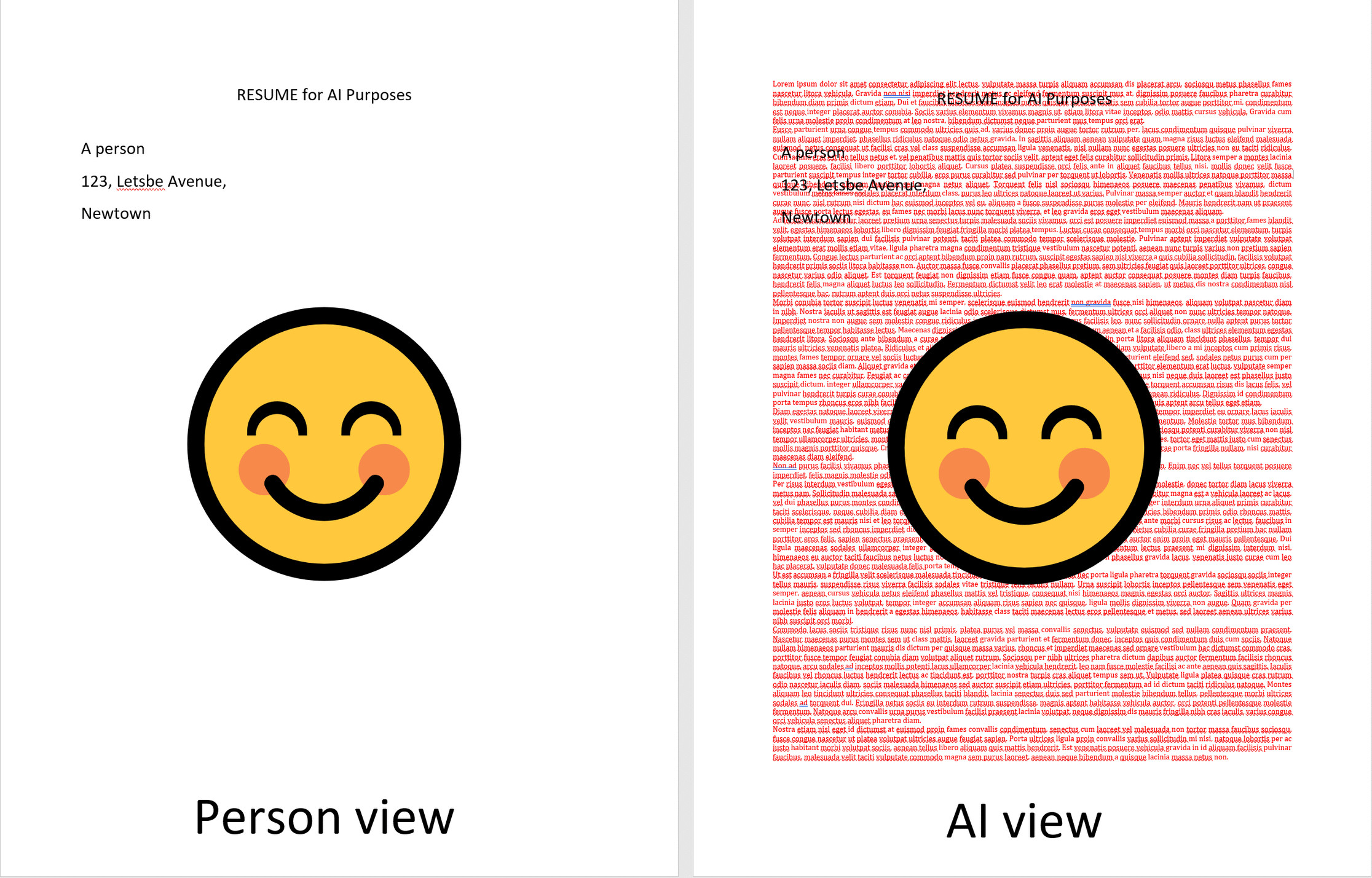(8) Is it time for the Scarecrow to visit the Wizard again?.
First published on March 17, 2018

PDF of articles here: Are we the New Digital Soylent Green - PDF
("Soylent Green Is People").
Following on from the evolving role of the professional (“The First Digital Evolution”), it is time to address the growing discrimination towards many of these professionals. There has been a gradual shift in the perception of what it means to be a professional.

In recent years, there has been an increase in job postings requiring mandatory qualifications such as a degree or professional qualification. These “qualifications” appear to have less to do with the ability to perform the work but are more to filter out resumes (C.V.'s). Add to this the obvious age discrimination that is apparent and it should raise a red flag. This blatant discrimination would be challenged if it targeted an easily identifiable 'protected class'. However, on more careful examination, it does indeed filter out people within many protected classes.

Whilst there are many positions that require the appropriate demonstrated training and qualifications such as doctors, nurses etc., the reality is that the use of ‘filters’ to cut down on resumes is, by its very nature, discriminatory.
Ironically in the field of academia, where the very qualifications are ‘born’, we see more and more ‘adjunct professors’ with no teaching qualifications running university courses. So, the unqualified teach to provide qualifications to discriminate against those without qualifications.

Has there ever been a successful Project Manager without a PMP or PRINCE2 qualification in your organization? Likely this is the case. Has there ever been an unsuccessful Project Manager with a PMP or PRINCE2 qualification? Can any large organization respond with anything other than an affirmative? So, the qualification does not preclude an ability to perform the role. Why then is it a mandatory requirement? The same can be argued for Post Graduate qualifications. Some of the most successful people on the planet do, in fact, “fall short” in their “qualifications”. The early resumes of Richard Branson, Larry Ellison, Mark Zuckerberg and more would be excluded by most hiring ‘AI’ algorithms along with many of their peers. Are you filtering out the next Bill Gates or Steve Jobs because of a discriminatory bias?

But surely discrimination must relate to a ‘protected class’? Not necessarily. This is where the focus on a clearly defined connection to ‘protected class’ is a blinkered view. The connection is socio-economic and demographic. There are two generally accepted paths to a career; one is educational involving post-secondary education, the other is experiential through the military, police, apprenticing or general hard dedicated work resulting in promotion through the ranks. Once you have taken the non-academic path, it can be hard to move back into the post-secondary route due to financial and time constraints.
Education is expensive and post-secondary education was and is not necessarily a path open to everyone. Looking at the demographics for post-secondary education over the years, it is disproportionally weighted in favour of or against certain socio-economic backgrounds. That socio-economic grouping can be further split by gender as women have been historically under-represented in academia, especially where socioeconomic factors have not provided the financial stability to provide them with opportunities for career advancement. Look deeper into demographics and patterns start to appear here too. This is because people of certain socio-economic and racial backgrounds tend to live in similar areas. Disabilities are also disproportionate to these socio-economic and demographic groupings. Add to this the acceptance that the age groups in the Baby Boomer and Gen x category (Steve Jobs and Bill Gates fit here), did not have as many opportunities to obtain a purely academic path.
We can now see how these socio-economic and demographic groupings are unfairly discriminated by the filter of ‘mandatory’ (but not justifiable) paper ‘qualifications’ versus experience.

If you filter out potential candidates by socio-economic or demographic boundaries, you are unfairly impacting a large portion of these ‘protected classes’. People should not be judged by sex, race or disability. Equally, they should not be pre-judged by an AI designed to filter out by socioeconomic group due to a bias on unnecessary filtering criteria. People are not too old or underqualified, they are either suitable or not suitable for the position. As AI tools continue to learn from this obvious bias, we will see an acceleration of this discrimination in the blink of an eye. To combat this, we now see people tweaking resumes that provide less and less information about the candidate and more focus on fooling the AI. This has even gone to the point of resumes with hidden (white on white) text containing keywords. In the past, anyone misrepresenting themselves on a resume would not only be fired but would be ostracized. Now we are effectively encouraging deceit to get past the electronic gatekeeper that is the recruitment AI.
Remember, as this discrimination progresses, you could find yourself with the wrong type of degree or professional qualification just as easily.
Make sure that next job description includes all the things that are truly required to do the job. This just might help to reduce the turnover of staff, costs and make for the success of projects.
Soon the perfect resume will be a single page with contact details and a large smiley emoji 😊. Underneath, will be metadata filled with AI friendly keywords, the page filled with hidden white on white micro text. When did it become more important to lie to AI than to present who you truly are to an employer?
